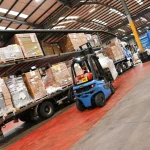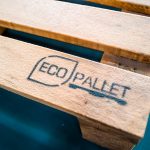
Heat-Treated vs. Chemical-Treated Pallets: Which is Better for Kenya’s Agri-Exporters?
Introduction
Kenya’s agricultural export industry is a vital contributor to the economy, with products such as tea, coffee, flowers, and fresh produce reaching markets worldwide. The choice of wooden pallets for shipping these goods is crucial in ensuring product safety, compliance with international regulations, and cost efficiency. The two main treatment options available are heat-treated pallets (HT) and chemical-treated pallets (CT). Understanding their differences helps exporters make the best decision for efficiency, sustainability, and compliance.
Understanding Heat-Treated Pallets
What Are Heat-Treated Pallets?
Heat-treated pallets undergo a controlled heating process where they are exposed to temperatures of at least 56°C (132.8°F) for 30 minutes. This process eliminates pests, fungi, and moisture, making them suitable for international shipping.
Benefits of Heat-Treated Pallets for Kenya’s Agri-Exporters
- ISPM 15 Compliance – Heat treatment meets International Standards for Phytosanitary Measures No. 15 (ISPM 15), required for exporting wooden packaging materials globally.
- Eco-Friendly & Chemical-Free – HT pallets do not introduce harmful substances, making them safe for organic and food-related exports.
- Durability & Strength – The removal of excess moisture prevents warping, rotting, and fungal infestations, making them more resilient in Kenya’s humid and coastal regions.
- Pest-Free Guarantee – Since no chemicals are used, heat-treated pallets eliminate wood-boring insects naturally, reducing contamination risks.
Understanding Chemical-Treated Pallets
What Are Chemical-Treated Pallets?
Chemical-treated pallets (CT) are infused with pesticides, fungicides, or preservatives like methyl bromide (MB) to eliminate pests. This treatment is intended to increase longevity and prevent insect infestations.
Challenges of Chemical-Treated Pallets for Agri-Exporters
- Restricted for Food Exports – Many international markets ban or restrict chemically treated pallets for food and agricultural shipments due to toxicity concerns.
- Environmental & Health Risks – Chemical residues may contaminate produce and pose risks to human health and the environment.
- Regulatory Non-Compliance – Some countries prohibit chemically treated pallets in their import regulations, making them unsuitable for Kenya’s fresh produce and flower exports.
Comparing Heat-Treated vs. Chemical-Treated Pallets
| Feature | Heat-Treated Pallets (HT) | Chemical-Treated Pallets (CT) |
|---|---|---|
| ISPM 15 Certification | ✅ Yes | ⚠️ Limited approval |
| Food Safety | ✅ Safe for food exports | ❌ Not recommended |
| Eco-Friendliness | ✅ No chemicals used | ❌ Contains chemicals |
| Pest Resistance | ✅ Kills pests naturally | ✅ Kills pests chemically |
| Durability | ✅ Resistant to warping & fungi | ✅ Resistant to pests but may degrade faster |
| Regulatory Acceptance | ✅ Accepted globally | ❌ Restricted in many regions |
Why Heat-Treated Pallets Are the Best Choice for Kenyan Agri-Exporters
Given Kenya’s strong agricultural export industry, using heat-treated pallets provides unmatched benefits in terms of regulatory compliance, food safety, environmental sustainability, and durability. Agri-exporters should opt for ISPM 15-certified heat-treated pallets to ensure smooth international trade, protect product quality, and align with global safety standards.
Conclusion
For Kenyan agricultural exporters, choosing heat-treated pallets over chemically treated ones ensures compliance with global regulations, environmental responsibility, and product integrity. By prioritizing safe and sustainable logistics solutions, businesses can strengthen their market position and ensure the safe delivery of premium Kenyan agricultural products worldwide.
If you want to read more information about how to boost traffic on your Website just visit –> The Insider’s Views.





Add a comment